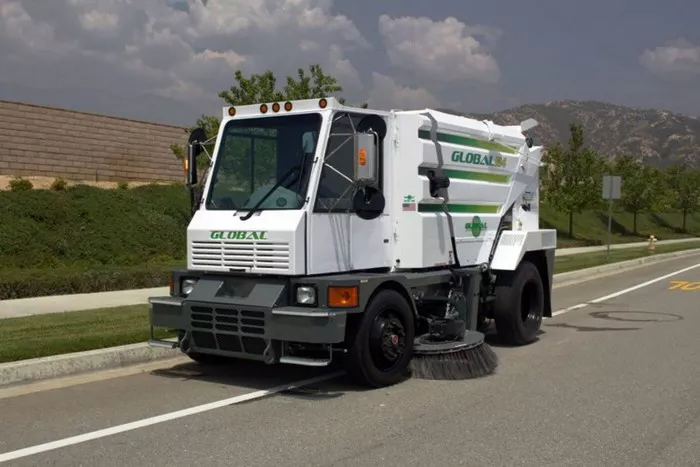At a recent City Council meeting, a proposal to potentially remove the D Street pilot project bike lanes was rejected by a divided council. However, the council reached a unanimous decision to approve the purchase of a $180,682 bike lane sweeper, a significant investment in street maintenance.
The council’s decision involved authorizing the acquisition of a “renewable diesel vehicle” designed for multi-purpose street maintenance. Dubbed the Multihog CV 350, this versatile machine is about 15 feet long, 5 feet wide, and 6.5 feet tall, and is often described as a “Swiss Army knife” for urban maintenance. In addition to its primary function of sweeping, the vehicle can be equipped with attachments for pressure washing, graffiti removal, mowing, trash collection, and winter maintenance.
“This versatile machine will address the needs of current and future buffer bike lanes and serve multiple functions throughout the city,” stated the staff report. Beyond bike lane maintenance, the Multihog will also be used for clearing debris from multi-use paths like the Lynch Creek Trail, maintaining park spaces, cleaning the Keller Street Garage, preparing streets for storms, and other tasks typically handled manually.
Despite the unanimous vote, the purchase was met with some skepticism. Council member Mike Healy questioned the expenditure, expressing concerns that the machine’s use might be limited to only a few days each month and that it could produce debris similar to that from the city’s main street sweeper.
Jeff Stutsman, deputy director of operations for the city’s Public Works and Utilities Department, defended the purchase, highlighting the potential benefits of the vehicle for various city functions and the possibility of saving staff time.
Council member Karen Nau followed up on Healy’s concerns by inquiring about measures to address the issue of metal debris reportedly left by the city’s waste management company, Recology. Patrick Carter, assistant to the city manager, noted that the city is considering outfitting street sweepers with nylon brushes, though he admitted that no sweeper is entirely debris-free.
Mayor Kevin McDonnell supported the purchase, emphasizing the importance of investing in professional equipment to effectively address city maintenance needs. He encouraged residents to report maintenance issues via the city’s “engagEPetaluma” app.
Public comment during the meeting included two speakers who voiced support for the sweeper. Jessica Mozes, chair of the Petaluma Planning Commission, noted the potential benefits of the sweeper in maintaining bike lanes by removing small debris that could impact bicycle tires.
Alternative options considered but not recommended included continuing the manual, labor-intensive cleaning of bike lanes or opting for an electric bike lane sweeper, which would be available in about a year and require additional funding. A bike-powered sweeper similar to one used in Napa, priced at $4,500, was also not considered.

